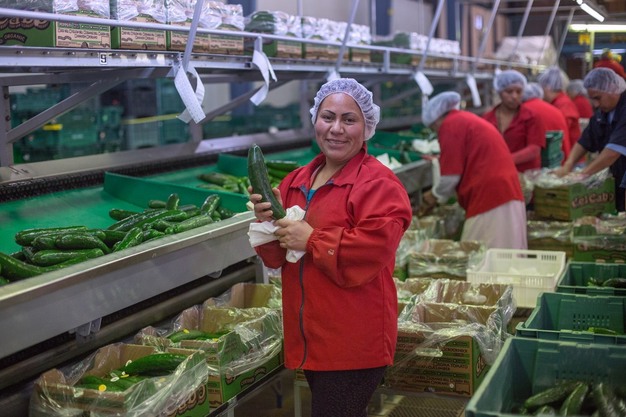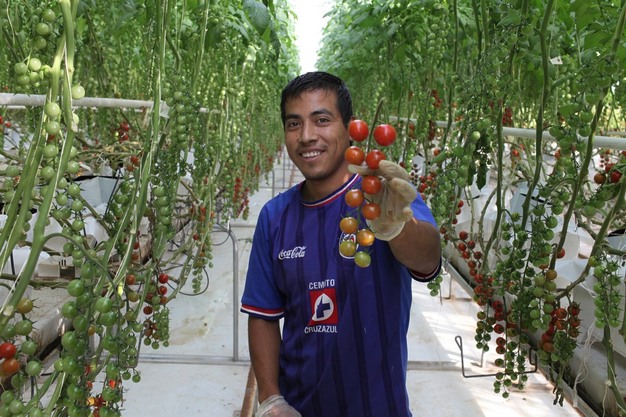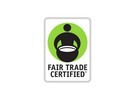Bananas. Berries. Tomatoes. What do these three produce items have in common?
Paul Rice knows. As the founder of Fair Trade USA and author of the new book, Every Purchase Matters, available starting April 8, he knows that in produce, these three are the top Fair Trade produce items. "Fair Trade produce last year in the U.S. grew by more than 32 percent. It's our fastest-growing category today. Right now, Fair Trade produce is on fire," says Rice.
Here, Rice reflects on the development of Fair Trade produce in the U.S., the state of Fair Trade in today's economic climate, and more.
What is Fair Trade?
Fair Trade is a rigorous standard in the produce industry around social, labor, and environmental performance. "There are over 200 compliance criteria that look at how companies treat their labor, the social development in the sourcing communities, and environmental practices and stewardship," says Rice. Simply put, when farms meet the Fair Trade standard and pass their annual audit, they are allowed to use the certified label on products.
 © Fair Trade USA"Right now, Fair Trade produce is on fire," says Rice (right). Photos: Fair Trade USA
© Fair Trade USA"Right now, Fair Trade produce is on fire," says Rice (right). Photos: Fair Trade USA
In turn, retailers pay a premium (two cents/lb.), which is returned to farm workers who then decide how that premium is spent–generally, it's on community projects supporting health, education, clean water initiatives, and more, which brings benefits to workers and their families. "Overall, it's a powerful approach to ethical sourcing that allows companies to channel resources back to the growing community," says Rice.
Fair Trade USA is one of two most notable certification labels–it was founded by Rice in 1998 and has about 92 percent market share in the U.S. Fair Trade industry. There is also a Fair Trade International certification label that is predominant in Europe.
In turn, that certified label indicates to consumers when a company has participated in Fair Trade practices. "We're seeing dramatic growth in consumer interest in sustainable products that's supported both by consumer research and also by the market performance of labeled fruits and vegetables," says Rice.
Produce items and Fair Trade
In produce, Fair Trade USA certifies approximately 60 produce items, and the growth in Fair Trade seems to be continuous. "Fair Trade produce sales–and across all product categories–grew during both of the last two recessions and the first Donald Trump presidency," he says. "Evidence suggests that consumers who care about social and environmental issues may cut back on some things that they're buying. However, they are not cutting back on socially responsible products that speak to what they care about in the world."
In produce, the top three certified items are bananas (largely in partnership with Dole); berries (largely in partnership with Driscoll's), and tomatoes (largely in partnership with NatureSweet and brands such as Wholesum Family Farms). "Walmart is the largest seller of Fair Trade tomatoes in the world. We've got real traction in tomatoes, mostly from Mexico but also from the U.S. as well. Also, Walmart's success in tomatoes is leading it to explore a whole other range of products," says Rice.
 © Fair Trade USAFair Trade USA certifies approximately 60 produce items, and the growth in Fair Trade seems to be continuous.
© Fair Trade USAFair Trade USA certifies approximately 60 produce items, and the growth in Fair Trade seems to be continuous.
Fast behind those three items are avocados, a produce item that retailers, particularly Whole Foods, Costco, and others, are asking growers to get Fair Trade certification in.
Though, why pursue such certification? What exactly is in it for retailers and other customers? For one thing, it's brand differentiation. "The certification opens the curtains to the scrutiny of an annual audit so that we can verify those good practices and then reward that grower who is arguably spending more money to produce responsibly but are competing with those who are not taking care of their workers," says Rice.
Working for business
Ultimately, he argues that Fair Trade certification is good for business. "I've always believed that if it didn't work for business, it wouldn't work for the farm worker and the farmer. We tried to create a model in which everyone wins–from a consumer who gets a delicious, healthy product to the farm worker who gets a better wage and the farmer gets a better price," he says.
One area where growers are reporting a Fair Trade benefit is in labor retention. Rice says NatureSweet recently reported that its labor retention of workers on Mexican farms is eight times higher than the industry average. "Workers want to work on a Fair Trade farm where they're treated with dignity, their wages are better, and they have this premium that allows them to invest in projects that benefit themselves and their families," says Rice. "If companies can retain workers, they have lower costs in terms of recruitment. They're also spending less money training new workers, and their productivity is higher because they have a more seasoned and experienced labor force."
However, in today's economic climate, isn't Fair Trade a bit of a tough sell? Particularly with potential tariffs on product shipping into the U.S. from Mexico and Canada? "Every economist is telling us that tariffs are inflationary. Imposing tariffs on Mexican produce is going to raise the price of that produce at the grocery store, so they are bad for consumers," says Rice. "They are also bad for U.S. companies. Many U.S. companies in this economy, where inflation has impacted demand, don't feel they can raise the price of produce to cover that tariff. So they're taking a margin hit, and it's going to hurt the profits of American companies who just don't see consumers being willing to pay the full impact of that tariff."
 © Fair Trade USARice says if companies can retain workers, they have lower costs in terms of recruitment and training and worker productivity is higher because they have a more seasoned and experienced labor force.
© Fair Trade USARice says if companies can retain workers, they have lower costs in terms of recruitment and training and worker productivity is higher because they have a more seasoned and experienced labor force.
The development of sustainability initiatives
That said, he sees no slowing necessarily of companies adopting the certification, though tariffs could have an impact on the sustainability practices and initiatives on participating farms. "The farms in Mexico facing tariffs are looking for ways to cut costs to cover them," says Rice. "So they're going to do it by not building that new worker housing project they had on their books or not implementing those energy-saving investments, even though they are good for the business and the planet. They are going to have to cut costs somehow, and that's probably going to come out of their sustainability budget."
Looking ahead, Rice says Every Purchase Matters, which he began writing two years ago, ultimately is a call to action. "Whether you're a buyer at a retailer or a consumer, every purchase matters, and we all can make the world better through purchasing decisions. That's an uplifting message for those who want to do something about the state of the world but don't know what."
 For more information:
For more information:
Fair Trade USA
https://www.fairtradecertified.org/
